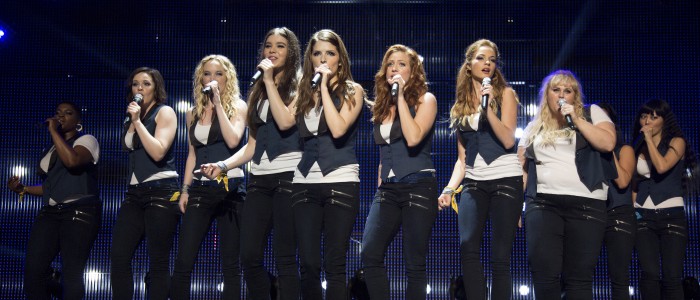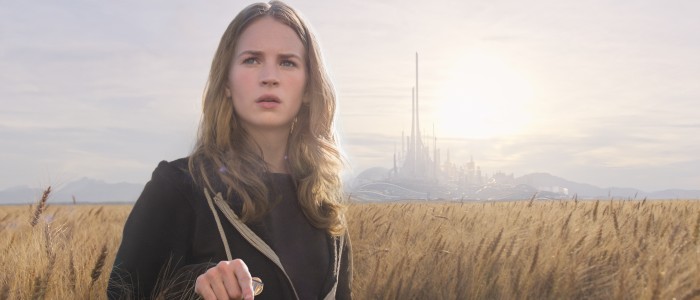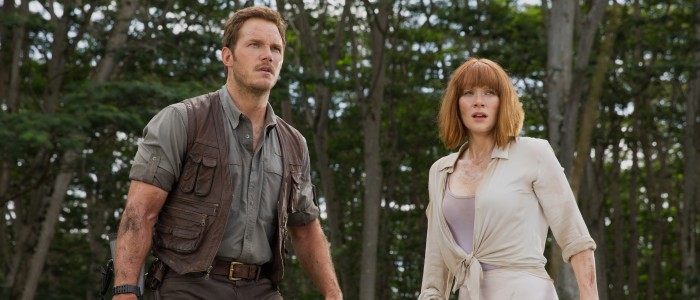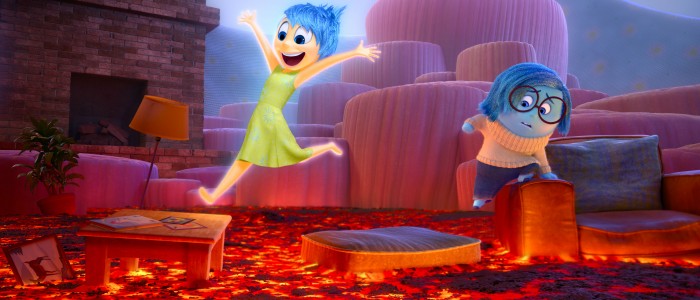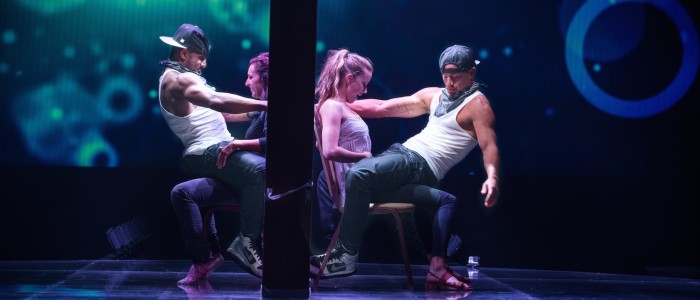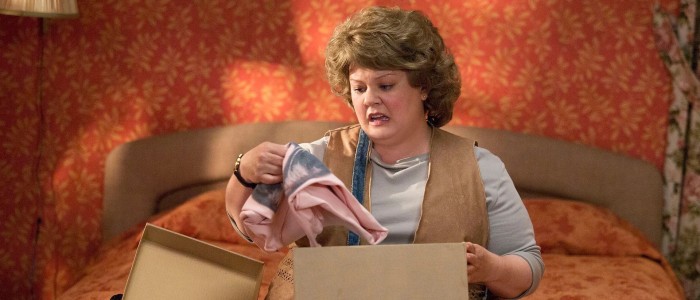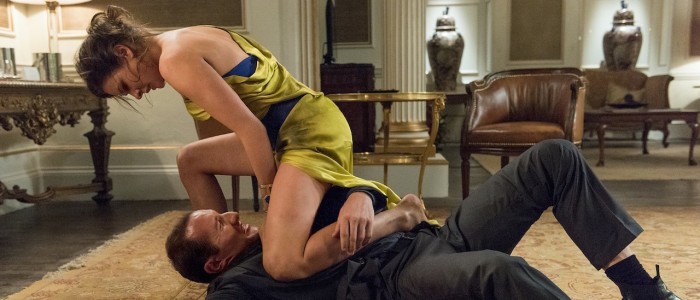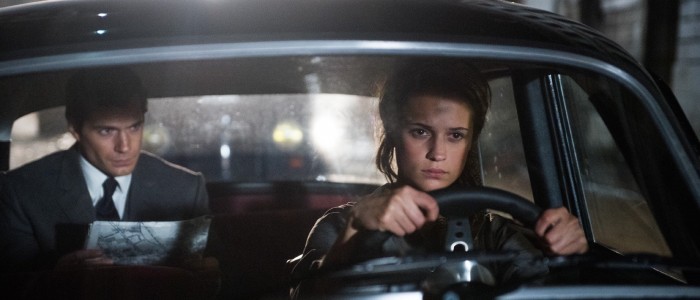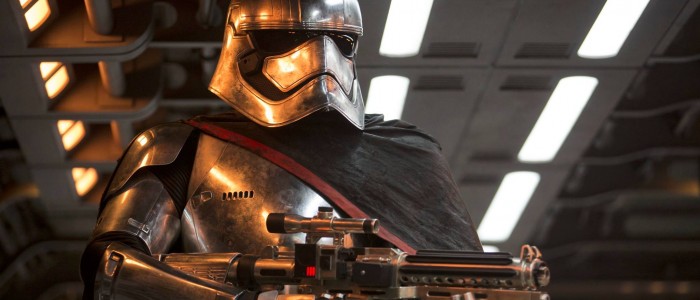How Did Hollywood's Big Summer Of Female-Driven Movies Measure Up?
At the start of the summer, Peter wrote an article wondering if 2015 was "the summer Hollywood finally bet big on women." There were plenty of titles to support that impression, from Tomorrowland to Mad Max: Fury Road to Trainwreck. Now that we've reached the end of the season, we thought we'd look back and consider how Hollywood's big bet on women played out in practice — and whether this era of female-driven blockbusters might continue. After the jump, let's look back at how the summer 2015 female-driven movies did, what it means for the industry, and where things might be headed next.
Mad Max: Fury Road
What's left to say, really, about Mad Max: Fury Road's treatment of women that hasn't been said already? While the marketing focused on Tom Hardy (an understandable choice given the franchise is built around Max Rockatansky) the film itself gave Charlize Theron's Furiosa equal or greater weight. In supporting roles, the wives got to have distinct personalities and inner lives. And the whole plot was structured around a deeply feminist message: "We are not things."
Box office-wise, Fury Road has turned out to be a moderate hit, grossing $374 million worldwide on a $150 million budget. But those figures don't tell the whole story. It's already attracted a strong fandom that pays homage via fan art and cosplay, and has been hailed by critics as one of the year's best films. Oh, and it's currently killing it on home video. Even after some of this summer's bigger hits fade from memory, Fury Road looks likely to linger in popular culture for some time.
Pitch Perfect 2
The first Pitch Perfect was a sleeper hit. The second was an undeniable smash. Pitch Perfect 2 crushed the original's box office take, raking in $285 million worldwide. And it did so with a female cast, a female screenwriter, and a female director. A sequel is already in motion. For audiences hungry for more female stories that's obviously a great thing.
It's just too bad this you-go-girl moment is marred by the film's casual racism, the most egregious example of which is a new character whose sole purpose is to spew "hilarious" reminders of how shitty her home country of Guatemala is. Let's hope the offensive humor is one thing they cut when they move ahead with Pitch Perfect 3.
Tomorrowland
Tomorrowland should've been a highlight of the season. In a genre (sci-fi adventure) where boys tend to be the leads by default, teen girl protagonist Casey Newton (the charming Britt Robertson) felt like a refreshing change of pace. Particularly because she wasn't defined by her gender. Casey would've worked equally well as a boy, and in fact was originally written as one.
Too bad Tomorrowland was the summer's biggest flop, losing an estimated $120-$150 million for Disney. Casey's gender was the least of Tomorrowland's problems, and it's hard to argue that she tanked the movie when the marketing purposely de-emphasized her and the other female lead in favor of male lead George Clooney. Still, it's hard not to worry that these awful numbers will send the industry running back to what it knows — sci-fi adventures about boys and men.
Jurassic World
On the one hand, it's exciting that the biggest film of the year so far, not to mention one of the biggest films ever, had a female lead. On the other, it's disappointing that the main thing people remember about said female lead is that she spent the entire movie sprinting in stilettos. The marketing didn't help matters on that front, either, favoring male lead Chris Pratt over Bryce Dallas Howard.
Given all that, it's unclear how much of Jurassic World's success can be attributed to its female lead. However, the film's astounding $1.6 billion haul sure looks like proof that a female lead won't hurt your box office prospects, at the very least.
Inside Out
It took Pixar 13 films to get to its first female protagonist, but just two more to get to its second. And while Brave fell back on that most familiar of Disney girl archetypes — the spirited princess — Inside Out, like Tomorrowland, centered on female characters who weren't defined by their gender.
In the end, Pixar's second female-led film became its third-highest-grossing (global) film ever, drawing $735 million to date. The picture was additionally hailed as a return to form for Pixar, bringing the studio back to the near-universal acclaimed it enjoyed in the days of Up and Toy Story 3. If Pixar ever doubts its ability to tell and sell female stories, they should look back at Inside Out as proof they can.
Magic Mike XXL
Magic Mike XXL is a bit of an anomaly within the scope of this piece, in that it's actually a male-driven movie targeted primarily at women. The film went out of its way to cater to female (and to a lesser extent, gay male) fantasies, and neither the marketing nor the movie itself seemed overly concerned with the possibility of alienating straight men.
Commercially, the results were mixed. XXL took in $117 million from its mostly female audience (96% in its opening weekend, according to Box Office Mojo). It's a pretty tidy profit considering it cost just $15 million to make, but far short of the original's $167 million gross.
Avengers: Age of Ultron / Ant-Man
The MCU has many strengths. Female characters aren't one of them, as became glaringly obvious with Avengers: Age of Ultron. Fans were unhappy with the film's treatment of Black Widow, one of the few major women characters in the MCU and the only female Avenger besides Scarlet Witch. To make matters worse, Marvel went out of its way to leave the superheroine out of the merchandising — a move so bizarre, even Marvel star Mark Ruffalo called them out.
Two months later, Marvel returned to the big screen with Ant-Man, which set up Hope Van Dyne as the obvious successor to Hank Pym but then sidelined her in favor of Scott Lang. (The characters themselves repeatedly note how illogical that decision is.) While the film ends with a triumphant promise that "it's about time" we got a new female superhero, it feels like premature self-congratulation from a franchise that not only won't get a female lead until its 20th movie, but that seems unsure of what to do with the female characters it already has.
However, these films might have helped pave the way for more and better female characters from the franchise, insofar as they may have contributed to the Kevin Feige / Ike Perlmutter split. Feige has often insisted that he hears the call for more female superheroes; with Perlmutter out of the way, he'll finally have a chance to prove he means it.
Trainwreck / Spy
Much has been written about Universal's record-breaking year, and the fact that it's gotten there on the strength of an unusually diverse slate, without a single superhero to its name. One of its many success stories is Judd Apatow and Amy Schumer's Trainwreck, whose $133 million worldwide total was nearly quadruple its budget.
Meanwhile, over at Fox, Paul Feig and Melissa McCarthy's Spy was also a strong performer, grossing $236 million worldwide. Both films used its leads' gender to put a fresh spin on familiar formulas (spy movies for Spy, obviously, and romantic comedies for Trainwreck), to widespread critical and popular acclaim.
Back in 2011, prognosticators wondered if Bridesmaids might inspire a wave of R-rated, female-driven comedies. Between Trainwreck, Spy, and the upcoming Sisters, it looks like 2015 is the year that wave finally broke.
Mission: Impossible - Rogue Nation
Who'd have guessed that Mission: Impossible – Rogue Nation would give us one of the summer's most intriguing new female characters, and one of the year's most exciting breakout actresses? The Mission: Impossible movies tend to play down anyone, male or female, who isn't Tom Cruise, but Rebecca Ferguson's Ilsa was perhaps as close to a co-lead as the franchise has ever gotten.
True, Paramount could have done a better job of selling the character. The marketing gave little indication that Ilsa would be such a prominent character in the movie, and (as Simon Pegg unhappily noted) tended to focus on Ferguson's physical assets. Nevertheless, the fact that Ilsa exists at all, in a franchise not particularly known for its rich female characters, is a welcome surprise. And audiences were happy to welcome her into the growing Mission: Impossible family, shelling out $511 million worldwide.
A Step in the Right Direction
For years, the conventional wisdom in Hollywood has been that female-driven movies don't sell, because women will watch movies about men but men won't watch movies about women. So the industry has bent over backwards to cater to men, specifically younger white men, at the risk of alienating audiences outside that demo.
In that context, this summer feels like a step in the right direction. Not only did we see several attempts to target a specifically female audience (Pitch Perfect 2, Magic Mike XXL), we also saw female leads in movies aimed equally at both genders (Inside Out, Tomorrowland), and prominent, well-drawn female characters in films that didn't necessarily require them (Mad Max: Fury Road, Mission: Impossible – Rogue Nation, and The Man From U.N.C.L.E.).
It's impossible to say how much of this summer's box office can be attributed to this more female-friendly vibe (or any other single factor, for that matter). However, it's worth nothing 2015 is the year's second-biggest summer ever at the domestic box office. At the very least, it's clear this summer's women didn't hinder the grosses.
There were still missteps. Pixels' insistence on stereotyping women as bitches, nags, damsels in distress, and literal trophies left a bitter aftertaste. (Though it's possible to even read that as a good sign, in some ways. Maybe Pixels' sexism felt so bracingly blatant because we're no longer used to seeing female characters treated that way.) And the otherwise excellent Straight Outta Compton sparked controversy for downplaying or outright ignoring the women in its subjects' lives.
There's still a ways to go, too. Of the 40-something wide-release films that opened this summer, just two (Pitch Perfect 2 and Hot Pursuit) were directed by women. In front of the camera, women of color continue to be overlooked. Only two of this summer's wide releases (Hot Pursuit again, and War Room) featured a non-white female lead.
What's Next?
The question now is whether the summer of 2015 signals real change, or just a fluke. After all, Hollywood continually underestimates films and audiences that fall outside the default white male demo. (That may be why films like Pitch Perfect and Straight Outta Compton are so frequently described as "overperformers.")
There are some promising signs ahead. Star Wars: The Force Awakens has a female lead in Daisy Ridley and appears to have at least three other significant female roles (Gwendoline Christie, Lupita Nyong'o, and of course Carrie Fisher). Spectre's marketing team has gone out of its way to emphasize its female characters and shed the "Bond girl" trope. And we actually have one more female-driven R-rated comedy coming up, Tina Fey and Amy Poehler's Sisters.
Looking further ahead, the next few years promise two more Star Wars movies with female leads (Rogue One and Episode VII), another female-led Pixar movie (Finding Dory), a Ghostbusters reboot with a primarily female cast, a 21 Jump Street spinoff with female leads, and two more female-centric live-action fairy tales (Alice Through the Looking Glass and Beauty and the Beast).
Even the risk-averse superhero genre is finally, slowly opening up to women. DC has Wonder Woman slated for 2017, while Marvel has Captain Marvel in 2018. And although next year's Suicide Squad features a mixed-gender ensemble, it's mostly been marketed around Harley Quinn and the Joker.
Of course, it's still possible a string of flops could come along and derail this move forward. Hollywood has a bad habit of overreacting to female-led failures; recall how Catwoman and Elektra put studios off of female superhero films for a decade. But in the meantime, there are plenty of films to fuel our optimism. And that in itself may be the most promising sign of progress. The more female-friendly blockbusters we get, the more audiences (and studios) will get used to them — and, hopefully, the less likely we'll be to willingly return to the guy-centric days of yore.


